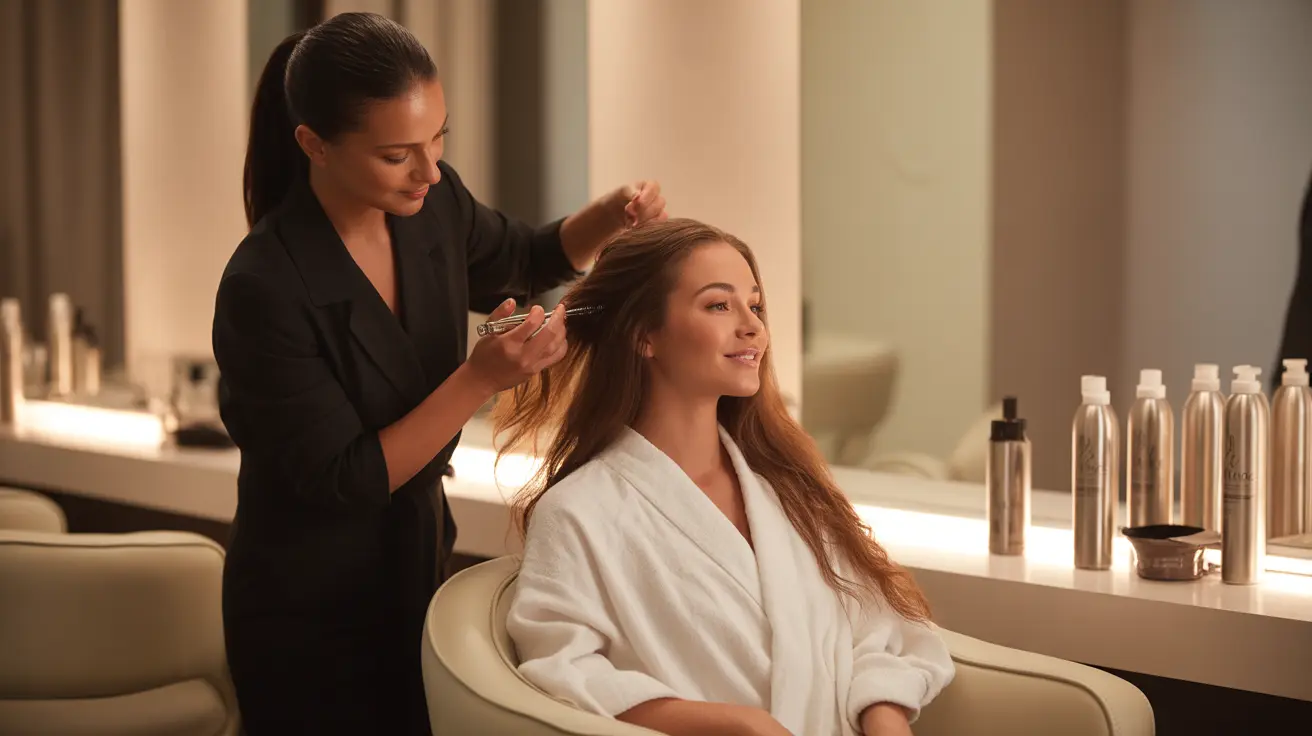Hair botox has emerged as a popular hair restoration treatment, offering hope to those struggling with damaged, frizzy, or unmanageable hair. Despite its name, this innovative treatment doesn't actually contain the botulinum toxin found in cosmetic Botox injections. Instead, it's a deep conditioning treatment that promises to restore and rejuvenate your hair from within.
Understanding what hair botox is and how it works can help you decide if this treatment is right for your hair care needs. Let's explore the details of this revolutionary hair treatment, from its benefits to potential concerns.
What Is Hair Botox?
Hair botox is a non-invasive deep conditioning treatment that combines various nourishing ingredients, including vitamins, peptides, antioxidants, and collagen complex. These ingredients work together to fill in damaged areas of the hair fiber, similar to how cosmetic Botox fills in wrinkles—hence the marketing name.
The treatment typically contains ingredients such as:
- Vitamin B5
- Vitamin E
- Collagen complex
- Amino acids
- Natural oils
- Protein complexes
How Hair Botox Treatment Works
The treatment process involves several steps that work together to restore and revitalize your hair:
The Application Process
- Deep cleansing of the hair to remove buildup
- Application of the hair botox treatment
- Processing time (usually 45-60 minutes)
- Heat application to seal the product
- Final styling and finishing
The Science Behind It
The treatment works by penetrating the hair shaft and filling in damaged or broken areas with proteins and nutrients. This process helps to rebuild the hair's natural structure, resulting in smoother, healthier-looking hair.
Benefits and Results
Hair botox treatment offers numerous advantages for those seeking to improve their hair's condition:
- Reduced frizz and enhanced manageability
- Improved shine and smoothness
- Restored moisture balance
- Reduced split ends
- Enhanced hair strength
- Color protection for treated hair
Duration and Maintenance
Results from hair botox treatments typically last between 2-4 months, depending on your hair care routine and hair type. To maximize the longevity of the treatment, it's recommended to:
- Use sulfate-free shampoos
- Avoid excessive heat styling
- Protect hair while swimming
- Use recommended maintenance products
- Schedule regular touch-up treatments
Comparing Hair Treatments
Hair botox differs from other popular treatments in several ways:
Hair Botox vs. Keratin Treatment
While both treatments aim to smooth and restore hair, keratin treatments often contain formaldehyde and require more stringent post-treatment care. Hair botox is generally gentler and more focused on deep conditioning.
Hair Botox vs. Cysteine Treatment
Cysteine treatments primarily focus on straightening, while hair botox emphasizes overall hair health and restoration. Hair botox typically offers more versatility in styling options post-treatment.
Frequently Asked Questions
What is botox for hair, and does it really contain botulinum toxin like injectable Botox?
No, hair botox doesn't contain actual botulinum toxin. It's a deep conditioning treatment that uses proteins, vitamins, and other nourishing ingredients to restore and repair damaged hair.How long do the results of botox for hair last, and what can I do to make them last longer?
Results typically last 2-4 months. To extend the results, use sulfate-free products, minimize heat styling, and follow proper maintenance care recommended by your stylist.What are the risks and potential side effects of getting a botox hair treatment?
Hair botox is generally safe, but some people may experience temporary scalp sensitivity or allergic reactions to ingredients. Always perform a patch test before treatment.How does botox for hair compare to keratin or cysteine treatments for frizzy or damaged hair?
Hair botox is generally gentler than keratin treatments and focuses more on restoration than straightening. Unlike cysteine treatments, it provides multiple benefits beyond just smoothing.Who can benefit from botox for hair, and are there people who should avoid it?
Most people with damaged, frizzy, or unmanageable hair can benefit from hair botox. However, those with severe scalp conditions or sensitivities should consult a professional before treatment.




